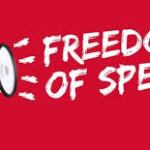

It will be worth watching out for what happens on 4 June.
It is the anniversary of the Tian An Men Incident (or Massacre) in 1989 when Beijing‘s month-long demonstrations for greater democracy ended in many deaths.
The biggest celebration is always Hong Kong’s. When I lived there I often joined hundreds of thousands of people in Victoria Park for the start of the march. Cardinal Joseph Zen, then bishop of Hong Kong, was usually there and led the pre-march inter-faith prayer meeting.
Many police were there too and they impressed me by their low-key, helpful role. They kept the traffic moving, made sure the parade was unhampered and that the event ended accident-free.
On Thursday the atmosphere is likely to be different.
With a new leadership in Beijing the peaceful and gradual integration of Hong Kong into the Chinese national system has been speeded up. A new security law has just been passed in Beijing which means anyone who is seen to be critical of the Beijing government can be arrested.
Until the virus threat stopped them, there had been regular demonstrations in the city against such a law. Some were violent and while the majority of people are strongly against violence they still supported the demonstrations.
Now the virus threat is ending and June 4 approaches. How will the people of Hong Kong celebrate Tian An Men and what will be Beijing’s reaction?
Whatever happens, Beijing’s new law will be implemented and many foreign businesses will begin to leave. It’s not just that people will no longer be able to say what they want but there will be doubts as to whether the courts and business oversight bodies will still be independent.
The richer citizens, and the foreigners, will gradually move out and the ordinary people, the workers, will be left behind in a city gradually losing its advantages and attractiveness.
Beijing will have shown a new impatience with those who disagree and the world will have got a taste of what that might mean.
